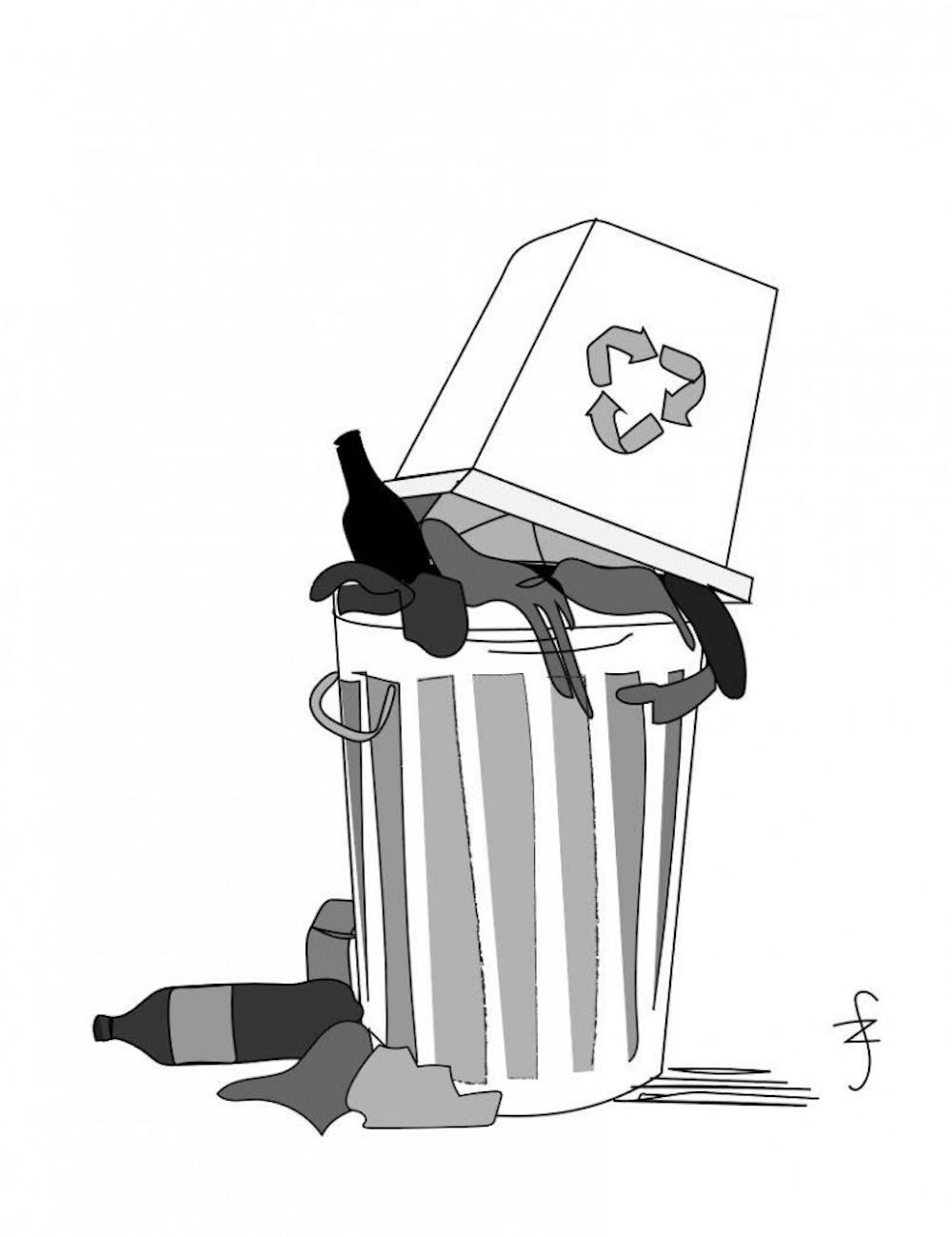Corporations have been known to capitalize on environmental sustainability to increase customer favor without clearly outlining the impact of their efforts. This should be no surprise: these companies pay to promote their business, not cure the ills of the world. Thus, their clarion call to consumers — a tantara of half truths — makes consumers believe they have made a positive choice. Thus, the recycling bin has become an all-magic chimera to throw in anything made of plastic, foil or paper, absolving consumers and corporations of their environmental impacts.
For example, the massively popular conglomerate Starbucks announced that by 2020 it would replace its plastic straws with “Nitro lids.” Straws can rarely be recycled due to their composition and small size; the new lid, though it has more plastic, is made of a commonly recycled material. Many consumers hailed Starbucks’ decision, and with this imprimatur came an immediately demonstrable financial impact — a significant jump in the price of Starbucks’ stock. Yet, we should not let Starbucks (or ourselves) off the hook. On our end, these lids must be recycled in order to reduce the amount of plastic in landfills, so please do so. For Starbucks, they still need to address a much larger problem for which a solution has not yet been found — the six-billion cardboard cups lined with plastic deposited in landfills each year. Even if a customer recycles a Starbucks cup, many recycling centers are ill-equipped to process the materials, and these cups actually contaminate the rest of the load. Starbucks should acknowledge the shortcomings of recycling, research the guides of the nearby recycling plants and post customized signs informing consumers of the materials that can be recycled in the area. This honest and transparent version of sustainability benefits the planet and its consumers much more than a blanket claim of alleviating environmental pollution.
But while its name is easily recognizable to us, Starbucks is only a microcosm of a global problem. One of the most significant environmental concerns is that some materials widely accepted as recyclable are in fact not. And misplacement of materials in recycling facilities has serious negative consequences. The successful and complete recycling of materials largely depends on the facility to which it is being sent — items and requirements drastically vary. For instance, plastic bags cannot be recycled unless sent to specialized facilities. In addition, China, to which many states export their recycling, recently tightened its rules about what it would no longer accept, including all post-consumer plastic and mixed paper. China also requires that recycled material only be 0.5 percent impure; batches that do not meet this standard are sent to the landfill.
This environmental issue and others manifest themselves far closer to home. Brown has prided itself on creating an environmentally-friendly campus. Brown students can no longer buy on-campus single-use plastic water bottles, sip from plastic straws or find a trash can without an adjoining recycling bin. Businesses that join the Thayer Street enclave have begun to accommodate their clientele’s sustainable bent. Yet, lackadaisical attitudes continue to exist on Brown’s campus. Too often, Brown students engage in “aspirational recycling,” by recycling items in hope that they can and will be recycled, or easily filtered out if they cannot be. Moreover, companies obfuscate the extent to which recycling can occur, leading to further contamination.
One example on Thayer Street is by Chloe. by Chloe sells exclusively vegan food with a myriad of meat substitutes, which positively impacts the environment because meat consumption leaves a huge carbon footprint. by Chloe has been rewarded with $31 million in funding from investors to expand. However, by Chloe’s local recycling system could improve to the paradigm set by its sustainable food choices. Commendably, the restaurant has chosen recyclable service material. Now, if only it would specify what can be recycled. Materials containing food scraps cannot be recycled and, similar to coffee cups, can contaminate an entire load. by Chloe does not alert its customers of this fact and instead allows them to incorrectly recycle. Companies on and off of Thayer Street must do more to guide consumers in order to claim the profit from sustainability.
I am certainly not disparaging companies who have committed themselves to becoming more environmentally friendly. I embrace any and all steps toward helping our environment. However, I wish to encourage best practices from companies who attempt to capitalize on sustainability and to exhort them to deliver real and lasting environmental improvement. Superficial benefits, which only complicate the disposal chain, too often go in the other direction. It is of limited or no value to lead consumers to believe they have “done their good deed” and thereafter become complacent or blind to instances of environmental degradation caused by their own choices. Ignoring basic rules of recycling in order to claim sustainability can be counterproductive. Companies must be more knowledgeable, and thereafter more open and honest about what can be recycled, if they really wish to promote sustainability. But it is everyone’s responsibility to be committed to protecting the environment. For consumers, I follow a piece of somewhat illogical advice — when in doubt, throw it out.
Emily Miller ’19 can be reached at emily_miller@brown.edu. Please send responses to this opinion to letters@browndailyherald.com and other op-eds to opinions@browndailyherald.com.





